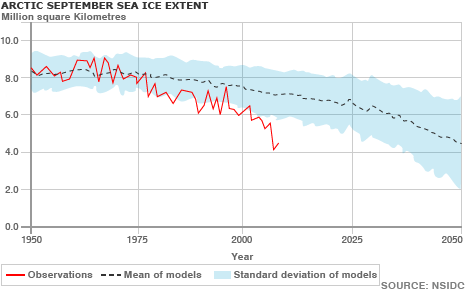Saturday, July 18, 2009
And that is the way it was...
I was a six year old kid, forty years ago this week, glued to a black and white television set as Armstrong, Aldrin, and Collins headed to their rendezvous with the Moon and history. They were my heroes, the Apollo astronauts, I knew every experimental payload they would leave on the moon, every excursion that was planned, the pitch/roll/yaw of the spacecraft, the alphabet soup of NASA acronyms.
We only got two channels back then, and we almost exclusively watched the CBS affiliate. CBS news carried live coverage of the flight, narrated by two historic figures in their own right, both coincidentally named Walter: One was astronaut Wally Schirra, the only astronaut to fly in the Mercury, Gemini, and Apollo programs. The other was Walter Cronkite. Cronkite was a towering figure - journalist, war correspondent, Morrow Boy, host of television programs like "You Are There", and the greatest news anchor in television history. His was voiced we listened to every night through the turbulence of the Sixties and Seventies, his soft Missouri accent carrying both authority and reassurance.
Good night, Walter Cronkite.
Friday, July 10, 2009
A Gap in Appreciation, or Understanding ?
Survey Shows Gaps Between American Public, Scientific Community.
The AP (7/10, Schmid) reports, "The share of Americans who see science as the nation's greatest achievement is down sharply, even as the public continues to hold scientists in high regard," according to a recent Pew Research Center poll, which "indicates that 27 percent of Americans say the nation's greatest achievements are in science, medicine and technology, more than any category other than don't know." However, that figure is "down from 47 percent in a similar study a decade ago." Still, the poll found that, "overall...science remains well thought of by Americans, with 84 percent of respondents saying it has a mostly positive effect on society," even in cases "when they disagreed with some findings."
The New York Times (7/10, A16, Dean) reports, "On the whole, scientists believe American research leads the world. But only 17 percent of the public agrees." Additionally, "while almost all of the scientists surveyed accept that human beings evolved by natural processes and that human activity, chiefly the burning of fossil fuels, is causing global warming, general public is far less sure." Specifically, "almost a third of ordinary Americans say human beings have existed in their current form since the beginning of time, a view held by only 2 percent of the scientists." Regarding climate change, "about half of the public agrees that people are behind climate change, and 11 percent does not believe there is any warming at all." A large proportion of "science association members surveyed said public ignorance of science was a major problem," and classified "coverage of science by newspapers and television" as "fair" or "poor."
USA Today (7/10, Vergano) reported that, regarding animal research, "52% of the public and 93% of scientists support drug testing or other experiments on animals." And, "51% of the public and 70% of scientists support nuclear power development." Science author Chris Mooney said the results were not "hugely surprising," but were "hugely important in telling people in science that maybe they need to reach out to the public better." Alan Leshner of the American Association for the Advancement of Science (AAAS) made similar comments, saying, "The results tell us we have a lot of work to do, not only on getting the word out about scientific findings, but about how science works."
The Christian Science Monitor (7/10, Spotts) reports, "Organizations like the AAAS are trying to encourage scientists to do a better job of communicating what they do to the general public," and frequently "focus on what the public and educators need to do to boost scientific literacy." However, Mooney argues that "people form their political positions based on a variety of factors, and scientists don't know how or don't try to reach out to them." He advocates greater "personal contact," which "may not change an individual's worldview...but it does have the potential to demystify scientists and the way they approach their world."
In the msnbc.com (7/9) Cosmic Log, Alan Boyle wrote that the poll's results "show that the situation is more complex" than a divide between two groups. For example, "the Pew study points out that most Americans really like science and think it's deserving of support."
Thursday, July 02, 2009
What Skepticism Reveals about Science: Scientific American

I love this quote they use from Leonard Nimoy on an episode of The Simpsons: “The following tale of alien encounters is true. And by true, I mean false. It’s all lies. But they’re entertaining lies, and in the end isn’t that the real truth? The answer is no.”

What Skepticism Reveals about Science: Scientific American
Confronting Scientific Climate Change Deniers

It is easy for those of us in the sciences to dismiss climate change deniers as simply uneducated or scientifically illiterate. But what about the occasional scientist, like Freeman Dyson, who comes along and challenges evidence for global warming?
I am not expert in these areas and so it is hard for me to evaluate the criticisms competently. This article on the RealClimate
does so very nicely, showing the data and graphs that are being critcized and answering those criticisms in a scientific fashion. This is a good site for climate change information.
The sad fact is that we need to confront the changes to the environment, both natural and man-made, but instead we bicker and squabble. Calling the members of Congress who voted for the recent energy bill "Cap and Traitors" is typical of this very unhelpful attitude.
Wednesday, July 01, 2009
The Future Map of South Louisiana?
The results is not pretty. Here is a projected map compared to today's coastline. It is not just New Orleans that is effected, Mandeville and the north shore, La Place, Donaldsonville, Houma - all gone.
